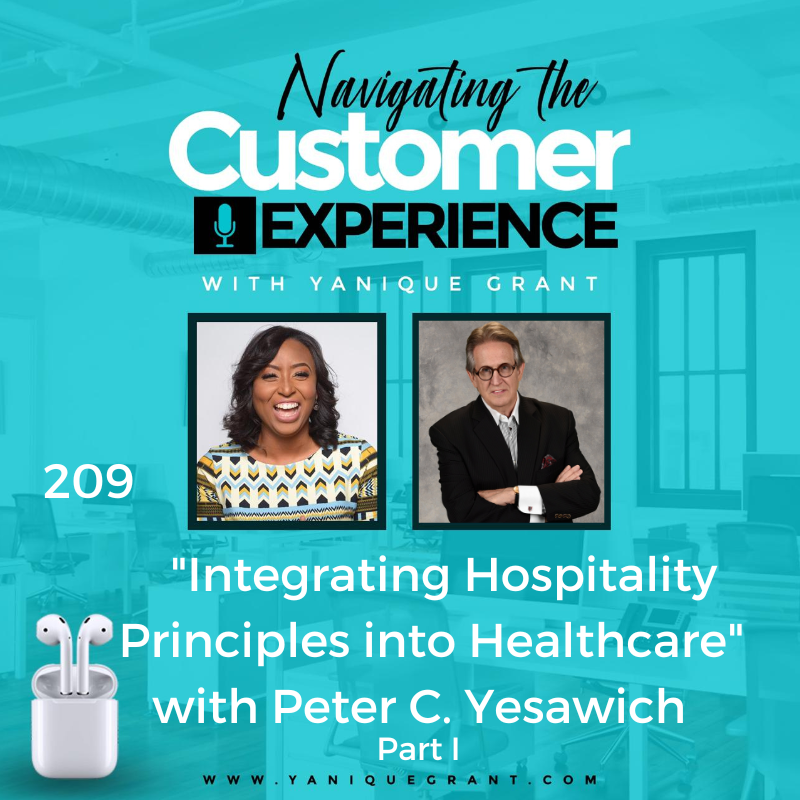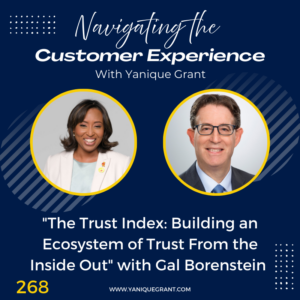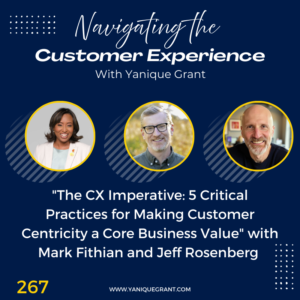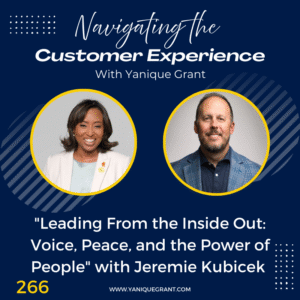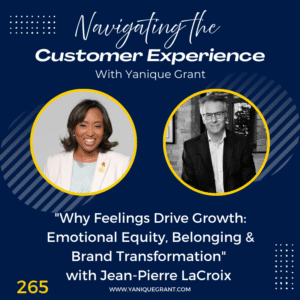Peter C. Yesawich is Chairman of Hospitable Healthcare Partners, LLC – a marketing consultancy serving hospitality and the healthcare industry clients – and Vice Chairman Emeritus of MMGY Global, one of the country’s leading marketing communications companies renowned for its strategic thinking, breakthrough creativity, and innovation in marketing practice.
Yesawich has contributed to the development of marketing programs for some of the industry’s most popular brands, destinations and organizations including: Fairmont Hotel & Resorts, Hilton International, Disney Parks & Resorts, Universal Studios, Atlantis, The Broadmoor, Sandals Resorts, Wynn Las Vegas, Marriott Vacation Club International, the Mexico Tourism Board, and the U.S. Olympic Committee, to name a few.
He is co-author of Marketing Leadership in Hospitality and Tourism, and the new book, Hospitable Healthcare: Just What the Patient Ordered!
Questions
• Could you share a little bit about your journey?
• Have you seen any common themes as it relates to customer service delivery on the part of the service provider that you think is universal to both areas?
• Now, could you also share with us what’s the one online resource, tool, website or app that you absolutely cannot live without in your business?
• Can you also share with our listeners, maybe one or two books that you have read, it could be a book that you read a very long time ago, or even one that you’ve read recently, but it had a great impact on you.
• What’s the one thing that’s going on in your life right now that you’re really excited about? Either something you’re working on to develop yourself or your people.
• Where can listeners find you online?
• Now, before we wrap our episodes up, we always like to ask our guests, do you have a quote or a saying that during times of adversity or challenge, you will tend to revert to this quote if for any reason you get derailed or you get off track, the quote kind of helps to just get you back on track. Do you have one of those?
Highlights
Peter’s Journey
Me: Could you share a little bit about your journey? I know in your bio, it gives us a summary of the clients that you’ve worked with, some of the impact that you’ve had. But we always like to hear in the own words of our guests, their words of how their journey has been and how they got to where they are today.
Peter shared that most of his career has been spent in the hospitality field, as you mentioned in your introduction there. Actually, when he finished school, he has a PhD in Psychology, and he never practised clinically, but he always wanted to use the education to understand the influence of marketing communication. So, that’s what he did for a period of roughly 35 years. And then, for a 10-year period, he took a sabbatical and he went into the healthcare business. And he did that for a bunch of reasons. But he joined a national oncology company by the name of Cancer Treatment Centres of America. They had 5 destination hospitals, 10 clinics served about 15,000 patients annually.
So, he had a unique perspective in hospitality, having worked with a number of the brands you mentioned, and in healthcare, and when I got to healthcare, it was very obvious to him that the health care experience for patients could be improved significantly if healthcare providers simply adopted many of the principles that have essentially led to the success of hospitality brands. So, that’s the short version.
And then a couple of years ago, he was in Las Vegas making a speech and he was in the greenroom. And he bumped into a gentleman by the name Stowe Shoemaker and he’s a gentleman he’s known for probably 20-25 plus years. He’s a gentleman who has a very distinguished career in academia.
And he at the time, was the Dean of the Hospitality Management Programme at the University of Nevada, Las Vegas. And prior to that, he was in Houston at the University of Houston, where he also had a joint appointment with the MD Anderson Cancer Centre. So, they’re trading notes and he said, “So, it’s amazing, your background is very similar to mine, because we both have experience in hospitality and healthcare. And we had the same kind of perspective, and that is that the healthcare experience could really be improved.” And that’s what ultimately lead to them writing this book.
Universal Themes Across Hospitality and Healthcare
Me: Awesome. So, hospitality and healthcare, those are two very important industries. Hospitality is more about fun and healthcare, of course, is about just living a healthy lifestyle, but seeing that you have exposure and experience in both industries, would you say there are some common themes in terms of customer service expectations that customers would have, because at the end of the day, if you go into a resort or a hotel you are going on vacation, 9 out of 10 times, people travel for business as well. But pretty much you’re not in pain, whereas, 9 out of 10 times, if you’re going to healthcare, you go for your check-ups, but most people a lot of times are already in pain why they’re visiting their doctor, whether it be a clinic or hospital. So, have you seen any common themes as it relates to customer service delivery on the part of the service provider that you think is universal to both areas?
Peter stated that it’s a great question. And the answer is there are many, in fact. But let him begin by asking the question of your listeners, which is the way he really like to start the conversation, and that is he asked, “Can you think of a healthcare experience that you’ve had that was either unsatisfactory or gone wrong?”
And the answer for everyone is absolutely, yes. Everybody has a story about a healthcare experience that went wrong. And then he stopped them. And he says, well think about the primary reason for that. And it’s interesting to note that very rarely, is the reason is the clinical outcome the reason. Clinical outcome generally is very satisfactory for people in healthcare. But the reason primarily is the way the healthcare service was delivered.
So, to Yanique’s question, they actually began writing this book by doing a survey of 1200 adults in the US. And what they did is they looked at 22 common points of customer engagement, that are unique to both healthcare and hospitality, for example, the very front end, how easy or difficult is to get an appointment? We all hear stories about someone who wants to make an appointment with a certain type of medical specialist, and they’re disappointed because it takes weeks or months to do that, how does that experience compare with making a reservation, for example.
And then all the way through whether or not you know the cost of the service before it’s provided, in the hospitality industry, you absolutely do, because when you book, at that point, typically the cost of the service is confirmed, unfortunately, in the healthcare business, after you confirm an appointment, it’s very rare that you know the cost of the service before you receive it. And he’s sure you’ve (Yanique) got a story, everybody has a story about a surprise medical bill and how disappointing and unnerving that is. All the way through whether or not the provider asks you for feedback on the experience.
Last night, for example, he had dinner with some friends, and they booked the reservation on Open Table. And true to form, this morning, 8 o’clock, he gets an email from Open Table says, “How was your experience?” He will also tell you, a couple of weeks ago, he had an executive physical at a very well-known healthcare provider, and he has yet to hear from them to ask him about his experience as a patient.
So, point is that there are 22 of these points of customer engagement that they measured in the survey with 1200 adults. And basically, what they did is they asked them to rate their experience in 5 categories to compare their reaction or their experience on the 22 points of service engagement for hospitals – number 1, for walking clinics – number 2, for doctors’ offices – number 3, for lodging – number 4, that would be Hotels and Resorts. And the 5th was in dining and restaurants.
So, the way to think about this is they have kind of a 5 by 22 matrix. And in each cell, they have 1200 observations, so they have a really, really robust kind of basis analysis, in the punch line and all of that to your question about the common points of customer engagement.
What they then calculated is what they call the hospitality deficit and that is how much people felt the experience in healthcare was a deficit in terms of the service experience, versus hospitality. And out of that came 5 specific themes. He’s happy to talk you through those. But that’s a lot to kind of process. But the answer was, yeah, there are 22 common points of customer engagement that they identified, and they examined.
Me: Perfect. So, 22, that’s a lot, you want to kind of just maybe run through, just maybe this list the 22 for us, and then maybe you could talk about some of the ones that are near and dear to your heart?
Peter shared that what they did is they actually collapsed these into 5 themes. So, he’ll kind of just talk to those specifically. And then they can drill down on any of them that would be of interest.
So, the number one source of this deficit in service delivery between healthcare and hospitality is what he mentioned a moment ago, and that is for individuals not knowing or understanding the cost of the service before they receive it. And we’ve all had that experience in healthcare, whether if the bill is easy to understand or difficult to understand, whether or not if you know how much to pay for the service before you receive it. And then whether or not the cost of the service is consistent with your expectation. So, all of those kind of roll up into that first trend. And that is the primary source of dissatisfaction patients have with the healthcare experience. And you can probably think of an example for you personally, he has them, he’s sure the listeners have them.
The second theme that came out of this really interesting was the fact that patients and healthcare don’t feel like their business, so to speak, is appreciated by the providers. Now in hospitality, you get many thank yous, you get a thank you when you check in, and thank you when you checkout, you get a thank you when the waiter takes the order, you get a thank you when the bills presented.
And if you think about the expressions of appreciation patients have in healthcare, that’s very rare. It’s almost like, in many respects, for some providers, you the patient should be thanking the provider for the provider delivering the service. But that’s the second kind of source of this deficit.
The third is the whole arrival experience and reception. And we all have kind of stories about the clipboard, the dreaded clipboard, you show up at the doctor’s office, and they hand you the clipboard and say, “Please fill this out.”
And the irony is, you may have filled out the same clipboard a couple of weeks prior, either at the same physician’s office, or a similar, and maybe a referral that has been made. But how about the whole environment, a lot of doctors’ offices and hospitals have worked hard on that in recent years, but it’s still nothing like walking into a three or four star hotel or a restaurant where they’ve really given a lot of thought to things like colours, and textures, and aromas, and all the things that really do impact our sense of arrival and the way we’re greeted, when we arrive too.
The fourth theme is what they call service logistics. And that’s this ease or difficulty of making an appointment or getting a reservation. And then the other aspect of that is the check in process, is it easy. He suspects many of the listeners are members of frequency programs, like whether it’s with hotels, or airlines or restaurants. And they’ve worked very hard to create these customer profiles, right, they understand your preferences, they know that maybe you like a certain type of pillow in a hotel, or a certain type of bedding, or a seat on an aeroplane, it’s interesting in the healthcare business, that kind of information although it’s readily available, is very rarely tracked and used.
So, what happens is the check in process becomes very cumbersome, go back to the idea of the dreaded clipboard, but it’s providing the same information over and over again. Or the other thing in hospitality is that’s been very effective in terms of recognising customers, is giving them a little special attention.
So, for example, if you’re a member of a loyalty program for a hotel company, you might check in at a different location at the front desk, so they might have a little plaque there that says, “Reserved for our loyalty members” or whatever.
In the airline business, people scrambled to get loyalty status, so they can get an overhead bin when they get on the plane, or that maybe they have a chance to pick a seat ahead of time.
So, the whole idea is that there’s some special recognition, doesn’t happen in healthcare, right? You stand in the same line with everybody else, whether or not you are a repeat patient or first-time patient. And we can talk about that, because there are ways to solve that in healthcare, but they don’t exist today.
And then the last theme here is they call service recovery. You know for example if you’re off in a restaurant, and the entree comes in and you’re unhappy and you mentioned that to the waiter or waitress, what happens is, they’re very quick to remove it and replace it and they might even give you a complimentary dessert. They’d say the sorry that happened. Or if you’re really unhappy, they just take it off your bill. Whatever happens when people contest a charge from a healthcare provider, have you ever tried to do that? You know what happens? It goes nowhere. And so, many times you’re arguing with the insurance company, or you might even be arguing with the provider. But the point is that service recovery is very poor in healthcare, and it’s very good in hospitality.
So, those are five themes, it’s knowing the cost of the service, being appreciated as a customer, the whole arrival experience, the service logistics that is the check in process, and so forth. And then finally, service recovery. So, the 22, they kind of collapse into those 5.
Me: So, to be really honest, of all the themes that you mentioned just know, the one that you mentioned about loyalty from a healthcare perspective, that was like a BFO for me, a blinding flash of the obvious, because you’re so right, like most industries have some form of reward that you get for being loyal to them. I don’t have one doctor that I go to my ophthalmologist, my gynaecologist, my GP, none of them and I’ve been going to them for years. My dermatologist, I’ve been going to her from I was 16. Wouldn’t they benefit from making their customers, their patients feel like they valid them? And because the reality is we can switch, I’ve switched doctors in the years I’ve been going for various reasons.
I remember when I just had my daughter, the paediatrician was extremely cold in some feedback he had given me when she was 6 months old, she had this really high temperature, I was a first time mom, I was 24 and I called the office to schedule an appointment, because I was doing all the things at home to get the fever down, and it wasn’t working. And their response was, I should just bring her in later in the day. And when I spoke to him, finally, he said he was playing golf and that statement in itself made me switch. I’ve told that story to so many people, she’s 18, she turned 18, two weeks ago, and that was when she was six months old. And I’ve never forgotten it. And I would never recommend anybody to go to him based on that experience.
Peter stated that Yanique hit the nail on the head with that, one of the things that they examined in the book is they actually created a service model for healthcare practitioners, that has five elements in it, it’s called the PAEER Model, that’s an abbreviation. The P is to Prepare the care for the patients. And that’s the whole idea of learning more about them before they arrived. The next is A, which is to Anticipate, which gets into this whole issue of the anxiety that people feel when they’re pursuing healthcare services, particularly if it’s in kind of an emergency situation, we can come back to that in a second. The first E is the Engagement Processthat’s this check in or the arrival and how easy or difficult it is. The second E is Evaluation, that’s asking for feedback. And the one the last is R, which is what you just mentioned, which is Reward. So, let’s just take a second and explore that. And let him digress for a second because this is a little bit of humour. But he thinks it makes the point.
They open the book with a story about a fictitious patient. It’s a guy who is in his mid 40s. And he lives in Ohio, and he’s pretty concerned about his health, he goes for an annual physical, and his PCP says, “Okay, time for your first colonoscopy.” So, they chronicle this guy’s experience, trying to get a hold of the gastroenterologist making an appointment, how difficult that was, the fact that he shows up, they don’t really recognize him, have no background information. So, he’s got to take a half an hour with the clipboard to fill all that out. The fact that he doesn’t know the physician and the first time he sees the gastroenterologist is when he’s lying on the gurney, and they roll them in. He has the colonoscopy, and he wakes up and says, “How did you do?” And they said, “Well, we can’t tell you. But maybe a couple of days, we’ll have some results.” So, the guy worries all the way home, finally gets some good news.
But a couple of days later, he gets a bill in the mail from the anaesthesiologist that he wasn’t expecting, it was another $700.00. Nobody told him about that. And a week later, he gets another bill, which is the equivalent of a one month’s mortgage payment that nobody told him about. So, the guy goes wow. Well, six weeks later, he and his wife decided to go to Vegas for a weekend. So, they go online, and they look at the options, they find a spectacular hotel on the Strip, the guy’s a member of the hotel’s loyalty program. So, when they show up, he goes to the Front Desk, they say, “Mr. Smith, we’re delighted to let you know we’ve upgraded you to a suite.”And the guy goes, “Wow, that’s terrific.” So, they go to the suite, they have a wonderful time dining and shows and so forth. He’s ready to check out.
So, he looks at the app on his phone, it’s exactly what he thought it was going to cost. And when he gets to the front to the exit, the doorman says, “Mr. Smith, we hope you had a wonderful time and we can’t wait to see you again.” By the way, nobody said that to him when he left the gastro’s office. And so, two weeks later gets his visa bill and it’s exactly what he thought it was going to be. And he notices he gets 3000 reward points for his trip to Vegas.
And so, they asked the question, “Why didn’t he get reward points for his colonoscopy?” Now, when he says that most people go, “What? what are you kidding?” “No, we’re not kidding.” It’s to your point, why do healthcare providers not have loyalty programs?
And you think that that would make more sense in healthcare because the older we get the more healthcare we use? So, you’d think well, there’ll be reasons to encourage people to come back. Well and the answer to that is, most people in healthcare have never thought about it, they didn’t think it was appropriate. Now, there are certain legal restrictions if you have like Medicare, and Medicaid, where you can’t have any kind of financial inducement for people to come for care.
But two thirds of the people in this country with a healthcare insurance, it’s a commercial insurance, and that is absolutely appropriate. So anyway, they think that’s a horizon that you’re going to see a lot more of in healthcare, that more and more healthcare providers are going to start introducing these loyalty programs. Now, it doesn’t have to be any kind of financial incentive, it could be maybe it’s free cancer screenings, maybe it’s free educational programs on nutritional foods, or maybe it’s yoga classes, things that get you to live a healthier life. But it’s absolutely a wonderful point and they think it’s going to be more popular in the future.
Me: That’s definitely a gap that they’re missing out on, absolutely. Love that we dovetail nicely into that, and you’re able to kind of give us a pretty good synopsis of what the book is about. I have started consuming it, I remember that story about the gentleman at the beginning, because I remember reading that at the beginning. I haven’t completed the book fully yet, but I’m really enjoying the content and the comparisons, which is why I asked that first question at the beginning. So, I’m really appreciative of how you went into it and gave us some really good examples.
App, Website or Tool that Peter Absolutely Can’t Live Without in His Business
When asked about online resource that he cannot live without in his business, Peter shared that that’s a great question. And he will tell say that he’s sure like he’s everybody else in that it’s got to be Google. It’s just a wealth of information, which ultimately leads to more specific sites and content that reflect the uniqueness of the search.
The ABC’s of a Fantastic Customer Experience
Grab the Freebie on Our Website – TOP 10 Online Business Resources for Small Business Owners
Do you want to pivot your online customer experience and build loyalty – get a copy of “The ABC’s of a Fantastic Customer Experience.”
The ABC’s of a Fantastic Customer Experience provides 26 easy to follow steps and techniques that helps your business to achieve success and build brand loyalty.
This Guide to Limitless, Happy and Loyal Customers will help you to strengthen your service delivery, enhance your knowledge and appreciation of the customer experience and provide tips and practical strategies that you can start implementing immediately!
This book will develop your customer service skills and sharpen your attention to detail when serving others.
Master your customer experience and develop those knock your socks off techniques that will lead to lifetime customers. Your customers will only want to work with your business and it will be your brand differentiator. It will lead to recruiters to seek you out by providing practical examples on how to deliver a winning customer service experience!

